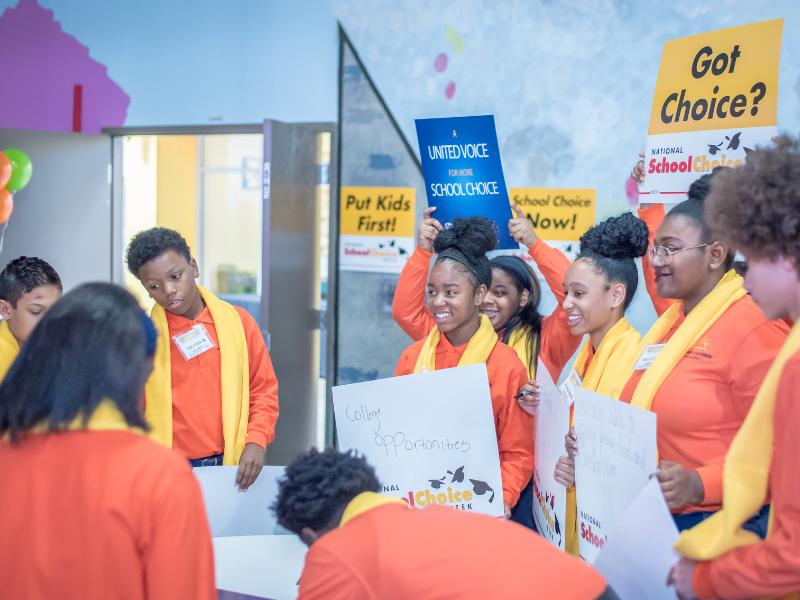School Choice Week focuses on giving parents and educators the tools to improve education outcomes for all students
First and foremost, School Choice Week celebrates the fact that every kid is unique. While public schools will continue to be a great option for many students, states are realizing that families need more education choices and flexibility overall. There’s no one-size-fits-all learning environment that can accommodate the diversity of learning needs that exist within our communities.
Parents know this well—so much so that the desire to give kids a quality, customized education motivated one in five parents to switch schools between March 2020 and May 2022. In 2023, polling found that 75% of parents, including two-thirds of Hispanic parents, supported more choices within the K-12 education system. Teachers share this support, as well: A majority think that Education Savings Accounts are a good idea.
Why all the positive support for school choice? More choice in education is a win for everyone. It expands opportunities for all families, not just those who can afford to make a choice or live in a certain area. States with robust choice programs tend to achieve better academic outcomes for all students, including those in the public school system.
These education outcomes are directly linked to students’ long-term success. Students who complete high school tend to have higher lifetime earnings, better health, more involvement in their communities, decreased mortality rates, fewer criminal records, and lower teen pregnancy rates.
With so much at stake, a child’s zip code should not limit their access to a quality education.
Georgia has opportunities to expand education options in 2024
Georgia’s School Choice Week coincides with the early weeks of the 2024 legislative session, making it a good time to consider the opportunities our elected officials have to shape a more modern, equitable education system in Georgia.
Here are few ways Georgia lawmakers could expand access to quality education for families this year:
- Pass Promise Scholarships (SB 233): The Georgia Promise Scholarship is a proposed education choice program that would allow parents to access the best schooling option for their child. These state-funded scholarships would give parents $6,500 per student for each school year and expand opportunity for kids in the bottom 25% of public schools. The bill needs to be passed by the House in 2024 and receive the governor’s signature in order to be enacted.
- Increase the Tax Credit Scholarship Cap: Costs often put private school options out of reach for lower and middle-income households. Georgia’s tax credit scholarship program alleviates some of this inequity by making private school scholarships available to K-12 public school students in need. Raising the scholarship cap would allow the program to serve even more kids. In 2024, the House of Representatives is considering a bill that would raise the cap from $120 million to $130 million.
- Allow Public School Transfers: We often think of school choice as alternatives to public schools, but there are ways to build flexibility into the public school system itself. This is a worthwhile goal because strong public schools will continue to be beneficial to communities. A proposed senate bill would allow students to transfer to a different public school within their district or a different district, making it easier for families to access the public school best suited to their child’s needs. Georgia Senators have a chance to pass that bill in the current session.
Behind all of these potential reforms, there’s a significant question about the future of education in Georgia: Will we keep pace with other states expanding education opportunity, or will Georgia continue to fall further behind?
Ways to participate in Georgia’s School Choice Week
See a full list of ideas here, and check out these ideas specifically for Georgia parents.
For communities, school choice is a powerful tool. When options exist—both public schools and alternatives—parents, educators, and communities have tools to focus on what matters most: Nurturing the development, success, and happiness of Georgia’s kids.








